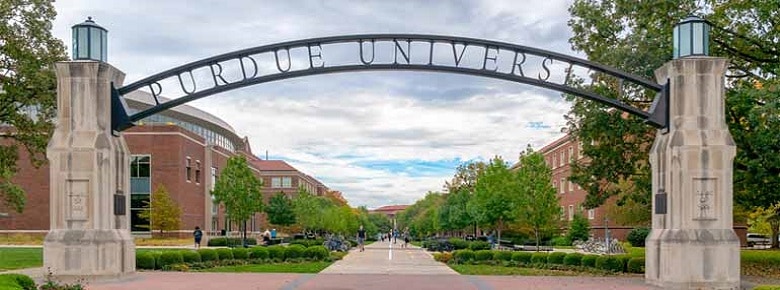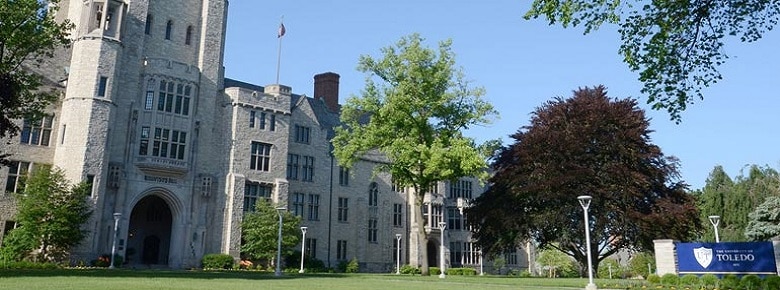If you have your heart set on going to college, there are many colleges that accept 1.0 GPA.

Every school has different minimum GPA requirements, but it is possible to find colleges that accept students with grade point averages lower than the national average.
Editorial Listing ShortCode:
If you are committed to your education, there are plenty of options for you to pursue as you start on your path toward a bachelor’s degree.
Colleges That Accept 1.0 GPA

If your goal is to attend a 4 year college, you don’t need to let a low grade point average stop you. Even with a 1.0 GPA, there are still many colleges you can apply to.
Your grade point average, or GPA, is a combined measurement of your grades throughout high school. Typically, selective colleges require a 3.5 or higher, although this does vary between schools. If you have a cumulative GPA of 1.0, you have a couple of different options you can take.
You can choose to:
- Review admissions criteria for specific schools
- Attend a junior college
- Strengthen the other pieces of your application
You may want to start by searching for low GPA colleges or ones that offer open admissions, which means that they generally accept anyone who has graduated high school.
You can also look for colleges that offer conditional acceptance. This means that the admissions team might offer you a place at the school if you complete a specific task they assign you.
Editorial Listing ShortCode:
For instance, with conditional acceptance, a student might be asked to pass a summer class prior to the beginning of the traditional academic year.
Another option for students with lower GPAs is to spend a few years at a junior college before applying to a 4 year university. Not only will this give you the opportunity to build up a stronger transcript, but it can also allow you to discover which subjects you are passionate about.
Luckily, colleges and universities look at several other admissions criteria in addition to your GPA. If you have a low GPA, you may want to take the time to ensure that the other pieces of your application, like your personal statement, are as strong as possible.
In addition to GPA, colleges may consider your:
- Personal statement essay
- Letters of recommendation
- Resume
- Extracurricular activities
- Standardized test scores
Regardless of your GPA, these additional aspects of your application can help a college develop a stronger picture of who you are as a person.
What Is a 1.0 GPA?

A 1.0 GPA means that you have consistently earned D letter grades throughout your high school career. It is the equivalent of earning a combined percentile score of 65%.
To contextualize this information, a 4.0 would mean that you have earned mostly As throughout high school.
The average GPA for students headed to a 4 year university right after graduation is 3.0 or higher. While a 1.0 is typically the lowest GPA accepted to college, there are schools that only require applicants to have a high school diploma or GED equivalent.
Even with grades that are lower than the national average, you can still go ahead and apply to 4 year universities. It is strategic, though, to first research their admissions policies.
Is a 1.0 GPA Good?

A grade point average is typically calculated on a grading scale that ranges from 0.0 to 4.0. Earning a 1.0 puts you much lower than the national average, and it is the equivalent of earning Ds in your classes throughout high school.
To put this into perspective, most students who plan on attending highly selective private universities have GPAs upwards of 3.5. Those who are aiming for selective public schools generally have GPAs in the 3.15 to 3.5 range.
Even though a 1.0 GPA is below the 3.0 average, there are several options you can pursue as you begin your college application journey. For instance, you might consider searching for open admissions schools or attending a junior college for a few semesters.
Can You Raise Your GPA?

Raising your GPA from 1.0 will be difficult, but it’s not impossible. The closer you are to your senior year, though, the more of a challenge it will be.
- Freshman. The simplest way to raise your GPA is to start early and come up with a plan. As a freshman, a guidance counselor can help you identify difficult subjects and assignments so that you can receive the proper help and support in the future.
- Sophomore. If you are a sophomore, you still have an opportunity to raise your GPA, although it will be a little more difficult. You can identify the areas in which you struggle and reach out for help. Putting in the extra effort to work with a tutor or study for a big test could pay off.
- Junior. It is difficult to raise your GPA significantly in your junior year. You might be able to raise it incrementally with some hard work. Your time and energy may be best used to focus on preparing for the SAT or ACT, two tests that can help offset a low GPA.
- Senior. During your senior year, college applications will already be due. You could choose to focus your energy on the SAT or look into making plans to attend a junior college, where you will have another chance to improve your transcript.
The most strategic way to raise your GPA is to intervene early if you notice that you are struggling.
Other College Admissions Considerations

All colleges and universities have their own admissions criteria, but many do ask for the following items in addition to your academic transcripts:
- Standardized test scores (only some schools require them). SAT and ACT scores can help a college learn more about your academic knowledge and test-taking skills. High test scores can help make a strong application shine or give you a boost if your grade point average is low.
- Personal statement. Your personal statement is your chance to show who you really are. This essay lets colleges know what makes you special. It gives you the opportunity to describe how significant events in your life have shaped and informed your desire to attend college.
- Letters of recommendation. Having strong letters of recommendation can speak volumes. These give colleges an outside perspective on who you are and what you are capable of.
- Extracurricular or leadership activities. Colleges tend to love prospective students who are dedicated to bettering their community or who demonstrate strong leadership skills. This is also a chance for you to show that you follow through on your commitments. So, picking a few activities that you stick with over time could be better than participating in as many as possible for shorter periods of time.
Putting significant effort into each portion of your application can help colleges and universities paint a complete picture of you as a person. While your grades say a lot about your approach toward academics, you are much more than that.
It could help to focus on ensuring that colleges understand all that you have to offer to their program, including your beliefs, experiences, and opinions.
What Grades Do Colleges Look At?
Colleges only look at your high school transcripts, often with an emphasis on the grades you earned during your junior year. If you attend a junior college prior to a 4 year university, the admissions team will look at that transcript as well.
Editorial Listing ShortCode:
Colleges will not be taking a peek at your middle school grades, though. Your academic record in middle school could be very different from what you achieved throughout your high school career. Colleges want to know who you are now, as both a student and a person.
What’s the Difference between Weighted vs. Unweighted GPA?
Many colleges will take into account your weighted GPA, which is your grade point average after factoring in the difficulty level of your classes.
| Unweighted GPA | Weighted GPA |
|
|
It’s beneficial to only take AP or honors courses in the subjects that interest you. While the extra work can pay off, these courses also require large amounts of dedication and focus.
What Is a Good College GPA?

Whether or not a certain college GPA is considered “good” will vary between schools.
Typically, college-bound students will have a GPA in the range of 3.0 or above. Highly selective private schools will often look for candidates with a GPA of 3.5 or higher. Selective public schools generally look for applicants within the 3.0 to 3.5 range.
If you have a GPA that’s lower than 2.5, you may want to search for schools with open admissions or focus on strengthening the other pieces of your application.
What Is the Lowest GPA You Can Get?
Most high schools measure grades on a scale of 0.0 to 4.0. The highest unweighted grade point average you can earn is a 4.0, which is an A average.
While a 0.0 is technically the lowest GPA possible, with an F average, a 1.0 is generally considered the lowest passing grade.
A 1.0 GPA means you have earned a D average in high school overall. If you find yourself slipping below the national average GPA of 3.0, you can always reach out for help. There are many ways to try and raise your grades, especially early on in your high school years.
Can You Get into College with a 1.0 GPA?

Yes, there are a variety of schools that accept 1.0 GPA, although your options will likely be more limited. Although a 1.0 GPA for colleges is not high, there are schools that offer open admissions, meaning that they only require applicants to have high school diplomas.
Attending a junior college is another option to consider. Most have open admissions, and a few semesters at a junior college can give you the chance to boost your grades and build a strong transcript for applying to 4 year universities.
What Is Conditional Acceptance?
Conditional acceptance is when a college will admit you based on how you respond to certain tasks or requirements laid out for you.
Editorial Listing ShortCode:
For example, if you have a low GPA but your grades have been trending upwards, a university may offer acceptance on the condition that you provide proof of higher grades during your senior year.
Generally, colleges that offer conditional acceptance do so based on a student’s application as a whole. If you are able to highlight your strengths in your application, then colleges are more likely to offer you a path to acceptance.
What Is Open Admission?

Open admission is when a college does not have a minimum GPA requirement for admission. This means that they look for applicants who have a high school diploma rather than a certain GPA range.
If you do not have a high cumulative GPA, this might be a beneficial option to consider as you apply to schools. While more selective schools will likely overlook applicants with 1.0 GPAs, schools with open admissions may still consider you.
Not all schools offer open admissions. Researching the schools that do will be a critical part of the application process.
Can You Get a Scholarship with a 1.0 GPA?

Not all scholarships have a GPA requirement. Even if you have a 1.0 GPA, there are still scholarships that you can apply for.
Every school offers its own unique scholarship opportunities. Many will look for applicants with strong letters of recommendation and personal statements. Before applying, you may want to take the time to ensure that these items really highlight your strengths.
Editorial Listing ShortCode:
It’s helpful to conduct thorough research into the requirements for each scholarship. You can save yourself time and effort by only applying to the scholarships for which you’re eligible.
Best Colleges That Accept a 1.0 GPA for Admission
Methodology: The following school list is in alphabetical order. To be included, a college or university must be regionally accredited and offer degree programs online or in a hybrid format. In addition, the universities accept 1.0 or no minimum GPA as part of their admissions requirements.

The Academy of Art University specializes in art and design degree programs. Classes can be taken on campus or online. Online classes include class discussions. The Academy of Art University has networking events to help students meet industry representatives and find jobs. The university uses a traditional semester calendar.
The Academy of Art University is accredited by the WASC Senior College and University Commission.

At Angelo State University, high school transcripts are the only item all applicants are required to submit. The transcripts should show both class rank and diploma type. ACT and SAT scores are optional. ASU offers degree programs in health and human services, arts and humanities, education, science, engineering, and business.
Angelo State University is accredited by the Southern Association of Colleges and Schools Commission on Colleges.

While admission to Baylor University is competitive, Baylor considers test scores and GPA to be only a part of each applicant’s story. All applications are reviewed holistically, with no minimum GPA or test score requirements.
Baylor currently has a test-optional policy. Test-optional students are still considered for scholarships.
Baylor University is accredited by the Southern Association of Colleges and Schools Commission on Colleges.

Brandeis University reviews each application holistically, considering both academic qualifications and life outside the classroom. Brandeis looks for applicants who demonstrate good critical thinking and who are engaged with their communities.
While there is no minimum GPA for Brandeis, most successful applicants graduated in the top 20% of their high school classes.
Brandeis University is accredited by the New England Commission of Higher Education.

Claremont McKenna College requires prospective students to fill out an application and submit a counselor recommendation, a teacher recommendation, and official transcripts. SAT and ACT scores are not required. Applicants may also schedule virtual interviews.
Claremont McKenna uses a holistic review process with no minimum GPA requirement.
Claremont McKenna College is accredited by the Accrediting Commission for Senior Colleges and Universities of the Western Association of Schools & Colleges.

Colorado Technical University provides open enrollment. No assessment testing is required, and there are no minimum GPA requirements either. Applicants just need to submit proof of high school graduation or GED equivalency. After submitting their applications, applicants typically hear back within 24 hours.
Colorado Technical University is accredited by the Higher Learning Commission.

Colorado State University requires the submission of official transcripts, a personal statement, and a recommendation for admission. SAT and ACT scores are optional. Applicants also have the option to provide an Academic Explanation if they would like CTU to have some context when evaluating their achievements.
Admitted applicants typically have GPAs between 3.4 and 4.1, but lower GPAs may be accepted.
Colorado State University is accredited by the Higher Learning Commission.

The admissions committee at George Washington University considers applicants’ GPAs, essays, letters of recommendation, extracurricular activities, and high school coursework. GW uses a holistic approach and does not have any minimum GPA or test score requirements, but admission is competitive.
George Washington University is accredited by the Middle States Association of Colleges and Schools.

Germanna Community College has no minimum GPA or test score requirements. All prospective students have to do is fill out a simple application. Germanna offers high-quality online classes that are 5 or 7 weeks long. Associate degrees are available in-demand fields, such as business administration, cybersecurity, and more.
Germanna Community College is accredited by the Southern Association of Colleges and Schools Commission on Colleges.

Grinnell College looks at the full scope of a prospective student’s application and requires no minimum test scores or GPAs. Applicants are asked to submit letters of recommendation. They may also have an interview if desired, and those interested in the arts may go to auditions or submit portfolios.
All applicants are automatically considered for scholarships.
Grinnell College is accredited by the Higher Learning Commission.

Louisiana Delta Community College is an open-admission, 2 year college. LDCC offers classes at eight campus locations and online. A variety of associate degrees and certifications are available in business, technology, industrial technology, liberal arts, natural sciences, math, nursing, and allied health sciences.
Louisiana Delta Community College is accredited by the Southern Association of Colleges and Schools Commission on Colleges.

At Loyola Marymount University, an applicant’s academic record is the primary factor considered for admission, but there are no minimum GPA or test score requirements.
LMU also takes into account other factors, such as writing ability, artistic and athletic accomplishments, and co-curricular activities and achievements.
Loyola Marymount University is accredited by the Western Association of Schools and Colleges.

Presbyterian College requires applicants to submit high school transcripts and respond to a few short answer questions. The admissions department also recommends submitting a resume and a letter of recommendation. Test scores and a personal statement are optional. The admissions office reviews each application holistically.
Presbyterian College is accredited by the Southern Association of Colleges and Schools Commission on Colleges.

No one factor determines admission to Purdue University. Purdue considers overall grades, grades in coursework related to the intended major, the difficulty of coursework, trends in achievements, and personal background and experiences. They also consider essay submissions and test scores if provided.
Individual majors may have additional requirements.
Purdue University is accredited by the Higher Learning Commission of the North Central Association of Colleges and Schools.

Rowan University has test-optional admissions and no minimum GPA. Factors considered in the admissions process include GPA, class rank, coursework, essays, counselor and teacher recommendations, and evidence of leadership and motivation.
If test scores are provided, they will be superscored, meaning only the best scores will be considered.
Rowan University is accredited by the Middle States Commission on Higher Education.

Rowan-Cabarrus Community College asks that applicants provide transcripts but has no minimum GPA requirement. RCCC operates under an open-door admissions policy, meaning it is open to all high school graduates over 18 years of age. Healthcare degree programs do have some additional requirements.
RCCC does use academic records and test scores to place students.
Rowan-Cabarrus Community College is accredited by the Southern Association of Colleges and Schools Commission on Colleges.

Sacramento City College guarantees admission to all high school graduates who are at least 18 years old. There is no minimum GPA, and applicants can receive information about enrolling as soon as they submit their application. SCC has hundreds of degrees and professional certification programs available.
Sacramento City College is accredited by the Accrediting Commission for Community and Junior Colleges of the Western Association of Schools and Colleges.

Admission to Samford University is competitive, but there is no minimum GPA requirement. Admitted students usually have GPA scores between 3.48 and 4.1. Test scores are optional for most applicants. Samford looks for applicants who are committed Christians and who have generally strong academic records.
Samford University is accredited by the Southern Association of Colleges and Schools Commission on Colleges.

South Seattle College has open-access admission, so all students are accepted. As soon as their application has been processed, an applicant can begin the steps for enrollment. South Seattle has programs in business, accounting, education, human services, health, medicine, science, technology, and more.
South Seattle College is accredited by the Northwest Commission on Colleges and Universities.

Southwest Tennessee Community College requires first-time students to submit high school transcripts and ACT scores. Test scores are used for placement and not admission, and applicants can take the ACCUPLACER if they do not have ACT scores. Southwest has open admissions with no minimum GPA or test score requirements.
Southwest Tennessee Community College is accredited by the Southern Association of Colleges and Schools Commission on Colleges.

SOWELA Technical Community College is an open-admissions college that offers a variety of associate degree programs and technical diplomas. Prospective students do not need to meet any GPA or test score requirements.
If graduates wish to pursue a bachelor’s degree, credits from SOWELA typically transfer easily to other colleges and universities in Louisiana.
SOWELA Technical Community College is accredited by the Southern Association of Colleges and Schools Commission on Colleges.

To apply to Stevens Institute of Technology, applicants need to submit high school transcripts, an essay, a counselor recommendation, and a teacher recommendation. Test scores are currently optional. In the past, successful applicants have had an average GPA of 3.8, but there is no minimum requirement.
Stevens Institute of Technology is accredited by the Middle States Commission on Higher Education.

At Syracuse University, prospective students must choose to apply to one of nine different undergraduate colleges, each of which has its own requirements. All students who fill out applications are automatically considered for scholarships. Syracuse is currently test-optional.
There is no minimum GPA requirement, but accepted students have an average GPA of 3.67.
Syracuse University is accredited by the Middle States Commission on Higher Education.

Admitted students at Texas Christian University have an average unweighted GPA of 3.8, but there is no minimum requirement. TCU’s admissions process is selective but also personal and holistic. TCU has a student-to-faculty ratio of just 13-to-1 and offers 115 different majors. Graduates have a high job placement rate.
Texas Christian University is accredited by the Commission on Colleges of the Southern Association of Colleges and Schools.

The University of Arkansas—Little Rock requires applicants to send official transcripts and entrance exam scores. Both are considered in the admissions process. UA Little Rock provides students with opportunities to study abroad, participate in internships and research, and network with professionals.
Degree programs are available in education, information technology, engineering, business, and other in-demand fields.
The University of Arkansas—Little Rock is accredited by the Higher Learning Commission.

The University of Maine at Presque Isle has a streamlined admissions process with no minimum GPA requirement. There are six start dates each year, and courses are available 100% online. Admissions requirements may vary depending on the specific degree program.
Degrees are available in accounting, business administration, criminal justice, and more.
The University of Maine at Presque Isle is accredited by the New England Commission of Higher Education.

The University of North Texas guarantees admission to applicants with a cumulative unweighted high school GPA of at least 3.0, but it is still possible to be admitted with a lower GPA. UNT is currently test-optional. Admissions decisions are made on a rolling basis.
The University of North Texas is accredited by the Southern Association of Colleges and Schools Commission on Colleges.

At the University of Toledo, each program has its own GPA and test score requirements. A cumulative GPA of at least 2.0 is recommended by the university, but those with a lower GPA can still apply. Test scores are used for class placement. Degree programs are available in healthcare, education, engineering, and more.
The University of Toledo is accredited by the Higher Learning Commission.

Utah State University simply requires prospective students to fill out an application and submit official transcripts. Test scores are optional. A high school GPA of at least 2.8 is recommended by the school’s admissions department, but those with lower GPAs may still apply.
USU offers over 240 different degree programs, and its student-to-faculty ratio is 19-to-1.
Utah State University is accredited by the Northwest Commission on Colleges and Universities.

Washington State Community College has an open admissions policy, but some specific programs do have selective admissions policies. ACT and SAT scores are not required for general admission but may be required for health science programs. Applications are processed on a rolling basis.
WSCC offers a variety of associate degrees, and classes are available both on campus and online.
Washington State Community College is accredited by the Higher Learning Commission.
Getting Your College Degree Online

Colleges and universities are looking for candidates who can grow into strong leaders and community members. They are hoping that the students who attend their institutions will reflect well on their schools through their actions, both during the school year and post-graduation.
There are plenty of universities that accept 1.0 GPA, and there are also alternative paths to earning a bachelor’s degree. The choice that makes the most sense for you will depend on your educational background and career goals.
Whether you want to earn your bachelor’s in person or online, you can get started by researching degree programs from accredited junior colleges and universities.

